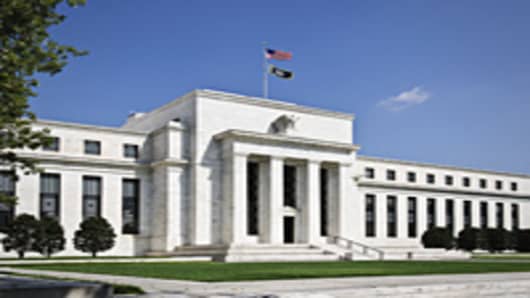This week, a cacophonous hubbub is overwhelming America's airwaves. For with the debt ceiling deadline approaching, almost every pundit and politician worth their salt has been expressing views on what could - or should - happen next.
There is, however, one notable exception: the mighty Federal Reserve and Treasury.
In recent weeks, senior officials at both institutions have warned in general terms about the risks of failing to raise the debt ceiling. They have also tried to reassure investors that this risk is small.
But what neither institution has yet done is clearly explain to the financial community what it will do if there is no debt ceiling deal by August 2, or US Treasury bonds are downgraded.
And while this reticence is understandable (after all, nobody yet wants to admit this might happen), it is fuelling the sense of anxiety.
"They are not saying anything, even in private," the head of one of the most powerful Wall Street groups confessed this week, who like others, feels "in the dark."
So what exactly do bankers and investors want to know in the coming days? The most obvious question, which is worrying bankers, politicians and voters alike, is which payments might be prioritised after August 2, when the US Treasury allegedly will need to cut some payments, if no debt ceiling deal is reached.
But, in addition to that, there are a host of more technical questions hanging over the markets, which the Treasury and Fed would do well to address.
These include, in no particular order:
1. What the US government might do to support the US money market funds if American debt is downgraded, or suffers a technical default?
These funds currently hold a large volume of Treasuries, and if Treasury bonds tumble in value - or go into technical default - this could erode the net asset value of these funds. This, in turn, could potentially spark a run on these funds of the type that started to occur in 2008, particularly since these funds (unlike bank deposits) are not protected. But since this might have systemic implications, it is uncertain whether the government will - or will not - act.
2. Will the US authorities step into the markets and act as the dealer or financier of last resort, if parts of the market freeze up?
Right now, it seems unlikely that Treasury bonds would become illiquid after any downgrade; after all, this is the deepest bond market in the world. But a downgrade of US debt could, ironically, force some asset managers to sell more risky instruments (such as triple B bonds) to maintain average ratings benchmarks in their portfolios. That might create bottlenecks. There is also a risk the so-called repurchase (or repo) market might freeze. That would almost certainly prompt the government to step in (by accepting bonds as collateral and making loans); how this might work, though, is uncertain.
3. What will regulators do about capital standards if some banks' balance sheets balloon?
In recent weeks, signs have already emerged of a flight of money towards supposedly "safe" banks in Europe and the US; if this accelerates, it could mess up some banks' attempts to tidy up their balance sheets. Bankers guess that regulators will be lenient; but - again - this is unclear.
4. How will regulators and risk managers respond if the "risk-free" status of US debt starts to crumble?
Treasuries are currently zero risk weighted for bank capital adequacy purposes. Bank supervisors are unlikely to change this. However, some banks are reviewing collateral policies. On Thursday the Chicago Mercantile Exchange raised collateral haircuts for clearing Treasuries.
5. What rules will apply for paying interest, accrued interest and principal on Treasury bonds, if a technical default occurs?
On a normal day, asset managers and custodian banks make huge numbers of payments to investors, linked to the treasury market; but many institutions are uncertain what to do if a technical default occurs.
Now the good news, if you like, is that these questions are (thankfully) still abstract; a deal may yet be brokered, and downgrade avoided.
Better still, the Treasury and Fed know that they need to produce answers soon. But, if nothing else, these questions reveal two crucial points: firstly, the degree to which the financial system is tipping into uncharted waters, as a result of this debt drama; and secondly, just how much unfinished reform business remains. In the past three years the authorities have addressed some systemic vulnerabilities that were revealed by the Lehman drama (say with CDS). But progress has been slow in the all-important areas of money market funds or the repo world.
Little wonder then, that markets are so uneasy. Once again, the authorities crisis management - and communication - skills could soon be tested. Better just hope they have improved in the last four years.


